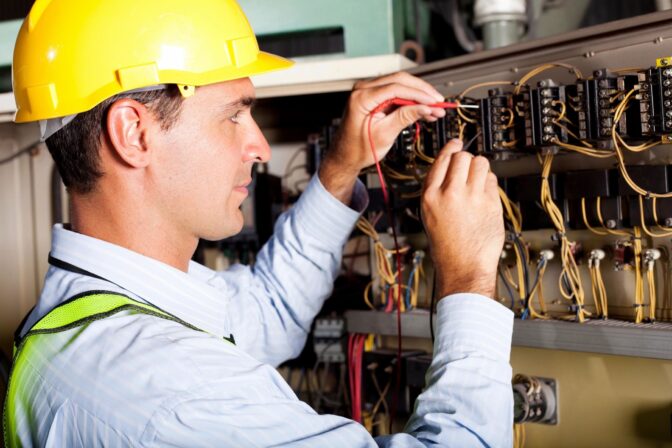As a homeowner, choosing the right materials when wiring a home is one of the key decisions to make. Over the years, copper wiring has become popular because of its numerous benefits. Energy efficiency, durability, and safety features are among the few advantages of copper. VARG Inc. has prepared the ultimate advice guide for you by highlighting the top 5 reasons you should use copper electrical wiring at home. Without further ado, let’s get started.
Copper Electrical Wiring Durability
Copper itself is a highly durable metal that can withstand a range of environmental factors and stresses that can cause other wiring materials to fail over time.
For example, copper wiring can resist corrosion, which is a major concern in areas with high humidity or salt exposure. Corrosion can cause other types of wiring to deteriorate, leading to poor conductivity, shorts, and even electrical fires. On the other hand, copper has a natural resistance to corrosion, making it a reliable choice for electrical wiring.
In addition to corrosion resistance, copper is also highly resistant to heat and wear and tear. Thus, copper wiring can handle high temperatures without melting or degrading. Copper electrical wiring can withstand the stress of daily use without breaking down or wearing out. Copper is also a highly flexible material, making it easy to bend when wiring the house.
Copper Wiring Efficiency
Copper is one of the best conductors of electricity, meaning it can carry electrical current with minimal resistance. When electrical current flows through a wire, some energy is lost as heat due to the resistance of the wire. This is known as “line loss” or “voltage drop.”
Copper electrical wiring has minimal electrical resistance, carrying electrical current more efficiently than old aluminum wiring. This leads to less line loss and lower energy costs. Using copper electrical wiring in your home can help reduce your electricity bills and make your electrical system stays energy-efficient.
In addition to its low resistance, copper wiring also has a low electrical impedance. Impedance measures how much a wire resists the flow of electrical current. A wire with high impedance will heat up and can cause a fire or electrical shock hazard. Copper wiring has a low impedance, which means it can handle high electrical loads without overheating or posing a safety risk.
Copper Electrical Wiring Safety
Copper electrical wiring has a high melting point and is fire-resistant. It can withstand high temperatures without melting, reducing the risk of electrical fires.
Furthermore, in the event of a fire, copper wiring does not produce toxic fumes when exposed to flames. Other types of wiring materials, such as aluminum, release toxic gases when exposed to heat or fire, which is hazardous to humans. Copper wiring is also less likely to cause electrical arcing or sparking.
Moreover, copper wiring is less likely to break or fail due to physical stress or environmental factors. This reduces the risk of electrical shorts, which can cause fires or electrical shock hazards. Copper wiring is also less likely to corrode, which can cause a reduction in conductivity and increase the risk of electrical hazards.
The Versatility of Copper Wiring
Copper wiring is a highly versatile material that can be used in various applications.
First, it can be used for low-voltage and high-voltage applications, making it suitable for residential and commercial buildings. Copper wiring can also be used for a variety of electrical systems, such as lighting, heating, and air conditioning.
Next, copper wiring is also available in a range of gauges, meaning it can be used for both small and large electrical loads. This flexibility allows electricians to customize their wiring designs based on the specific needs of the building and its residents.
Last, copper wiring is compatible with switches, outlets, and circuit breakers. This means that it can be easily integrated into existing electrical systems or new installations.
It Is Cost-Effective
While copper wiring may have a higher upfront cost compared to other wiring materials, its long-term value makes it a worthwhile investment.
Copper wiring has a long lifespan and can last for several decades without needing replacement or repair. This will allow you to save money on maintenance and replacement costs over time. In addition, the efficiency and safety benefits of copper wiring can help reduce energy costs and minimize the risk of electrical hazards.
Furthermore, copper is a highly recyclable material, meaning it has value beyond its use in electrical wiring. When copper wiring reaches the end of its lifespan, it can be recycled and used to produce new materials, reducing waste and conserving natural resources.
Finally, copper wiring can also increase the overall value of a home or building. A safe and efficient electrical system can be a major selling point for potential buyers when selling a property.
Summarizing, upgrading your home with copper electrical wiring is definitely something a homeowner should consider. It is durable, efficient, safe, versatile & cost-effective. At VARG Inc., our licensed and insured electricians will gladly assist you with your upgrade. Contact us today for a free estimate!



